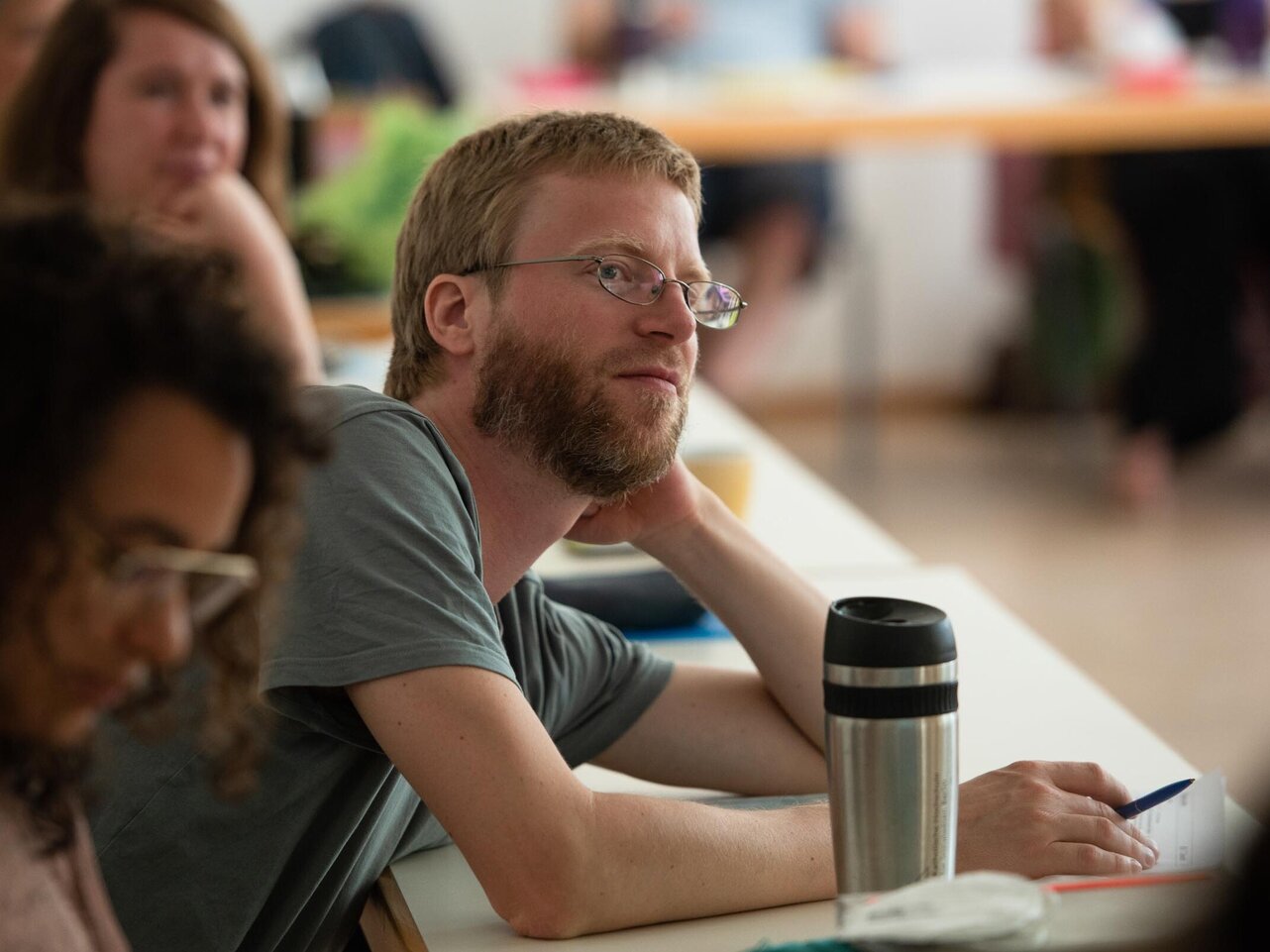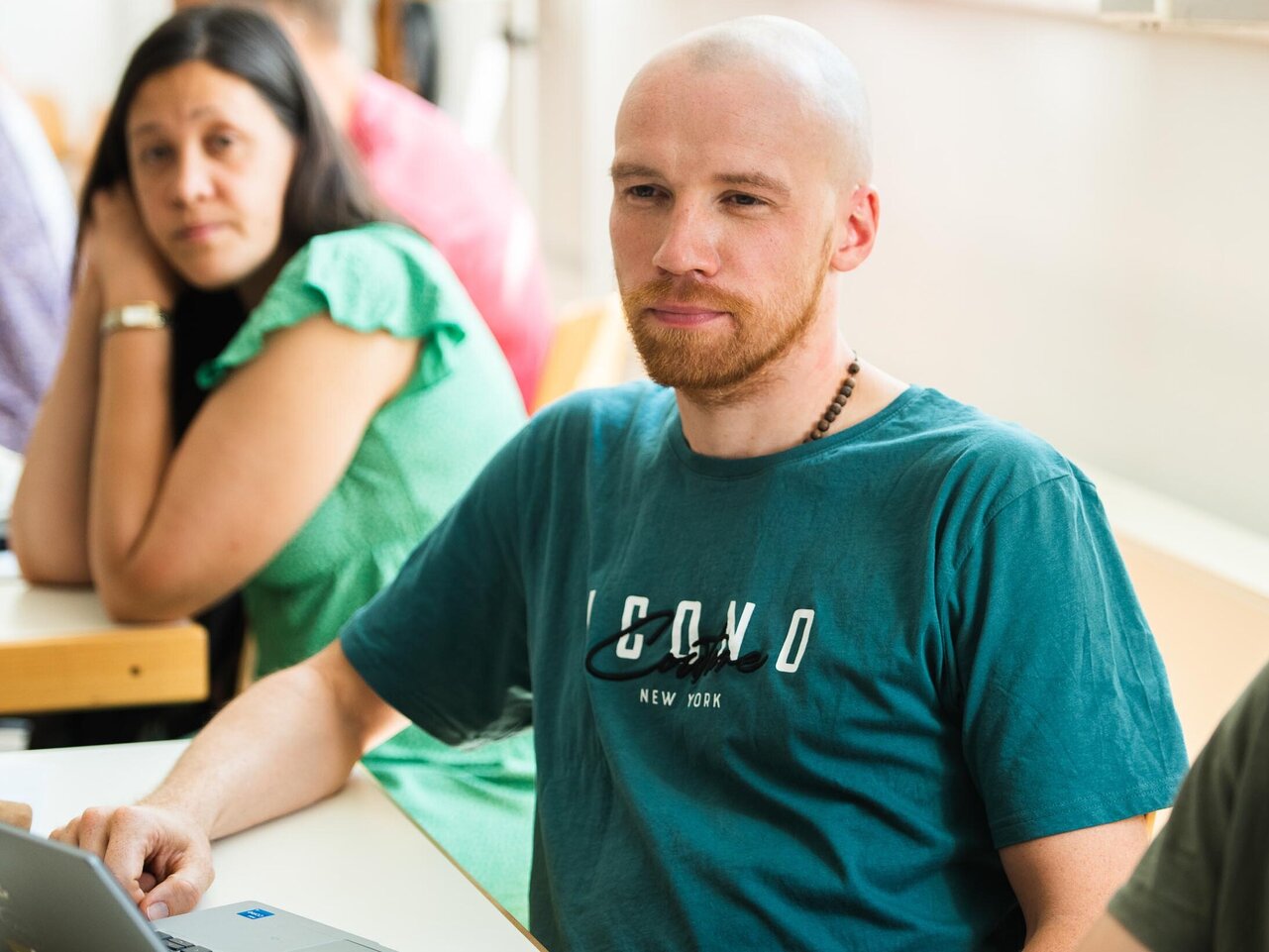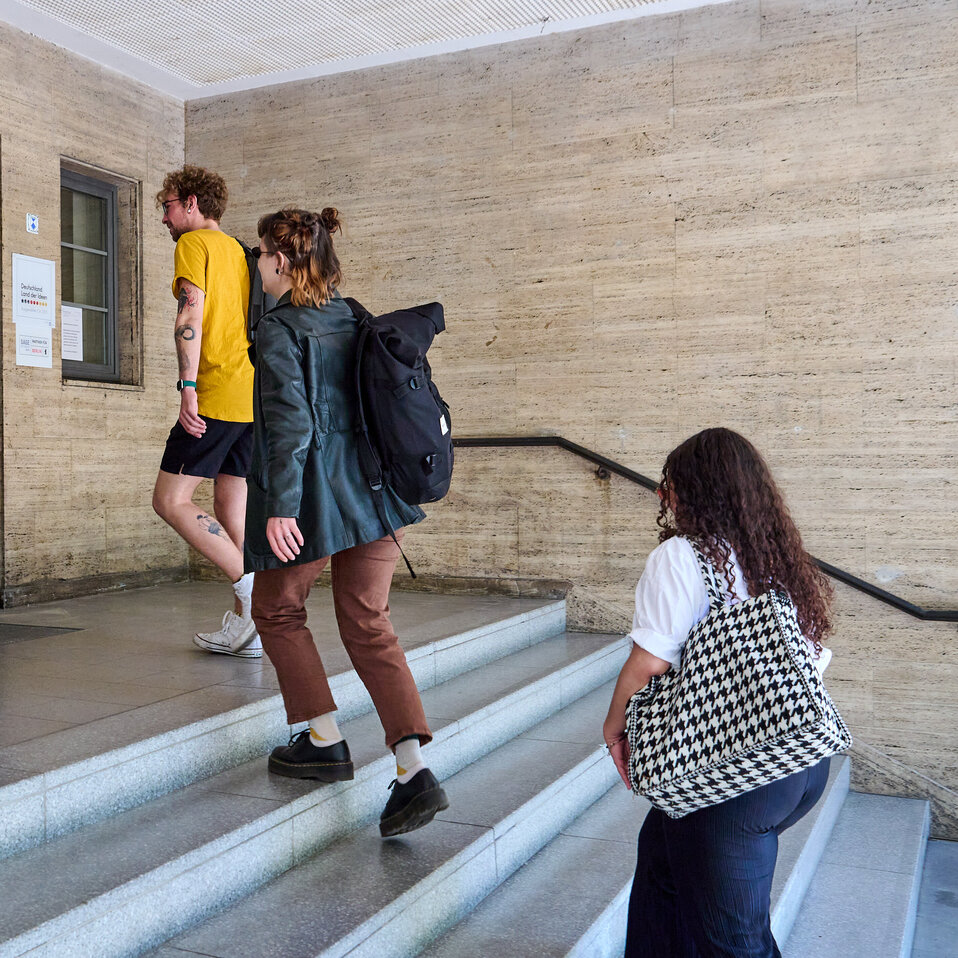Interdisciplinary psychosis therapy - multi-professional work for people with psychoses
Are you looking for a part-time Master's programme that focuses on working with people with psychotic disorders? Are you interested in interdisciplinary and multidisciplinary collaboration and want to deepen your skills in this area? Here you will find science-based and practical approaches for working with people with psychoses.

Study interdisciplinary psychosis therapy at the KHSB
Have you already gained some experience in working with people with psychotic illnesses and would like to deepen this? Then our "Interdisciplinary Psychosis Therapy" degree programme is just right for you! Immerse yourself in an exciting interdisciplinary discourse and expand your professional skills. Learn to apply cross-professional knowledge and develop a reflective attitude that always puts the affected person at the centre.
Get an overview of the content of the Master's degree programme in Interdisciplinary Psychosis Therapy over the course of the semester and the areas of study. We show you the areas of study that are covered in the course of the modularised study programme. Detailed information on the specific teaching and learning content of each semester can be found in the B.A. Social Work module handbook, which you can find under "Organisational matters" below.
Special features
The Master's programme Interdisciplinary Psychosis Therapy - multi-professional work for people with psychoses is offered by the International Psychoanalytic University Berlin (IPU Berlin) in cooperation with the Charité - Universitätsmedizin Berlin (CUB), the Catholic University of Applied Sciences Berlin (KHSB) and the University Medical Center Hamburg Eppendorf (UKE).
Special training format
This degree programme is open to graduates of various first professional degree programmes as well as professionals who are particularly qualified due to their many years of practical experience. For the first time in Germany, it guarantees the implementation of the core objectives of a further education course that qualifies students for therapeutic treatment, counselling and psychosocial work with people with psychoses and their environment at a high level.
Interdisciplinary study
As a cooperation project between four renowned universities, the degree programme enables the integration of a wide variety of professions in a unique way, all of which are required in working with people with psychotic illnesses. Pharmacological, psychotherapeutic or socio-psychiatric skills are just as much a part of the programme as social work, nursing or somatotherapy skills.
Legal innovations and their effects on the various professional groups and fields of work are included in the teaching and discussed from multiple perspectives.
Programme-specific admission requirements
A first professionally qualifying degree and at least one year of specific professional experience are required for the Master's degree programme in Interdisciplinary Psychosis Therapy.
If you do not have a first university degree, you can be admitted to the course with proof of at least five years of professional experience in the therapy, counselling or treatment of people with psychoses.
Expertise
The aim of the degree programme is to acquire scientific knowledge, methods, specialist knowledge, skills and experience. Analytical, reflective and action-related competences will qualify you for management positions in your own professional field.
After completing the programme, you will be able to
- categorise the phenomenon of psychosis from various scientific perspectives,
- analyse current specialist discourse,
- apply practice-oriented knowledge of specific therapy and counselling methods,
- better understand professional group-specific roles and tasks of interdisciplinary teams,
- reflect on different approaches to integrated social psychiatric care, including orientation towards the social space.
Career prospects
By successfully completing the Master's degree programme, you will acquire further academic training. You will qualify for the realisation of innovative practical projects and complex practical research with the possibility of a doctorate. The degree also qualifies you to take on management tasks in the higher civil service.
Facilities
- Various psychiatric inpatient, day-clinic and outpatient facilities such as
- General psychiatry,
- Geriatric psychiatry,
- Child and adolescent psychiatry,
- Forensic psychiatry,
- Addiction psychiatry Psychiatric facilities.
- Other facilities such as
- Health centres,
- Counselling centres and self-help groups,
- Facilities for people with disabilities,
- Rehabilitation clinics.
Further qualification
The Master of Arts degree in Interdisciplinary Psychosis Therapy is formally equivalent to Master's degrees from universities and generally entitles the holder to a doctorate. Further details can be found in the doctoral degree regulations of the respective universities. The degree also gives you access to the higher civil service.
FAQ Interdisciplinary psychosis therapy
No! As a state-recognised university of applied sciences, the Catholic University of Applied Sciences Berlin (KHSB) is not a private university, but a university under church sponsorship. In principle, anyone can study at the KHSB. The denominational affiliation or church membership of students is irrelevant. You are all very welcome.






